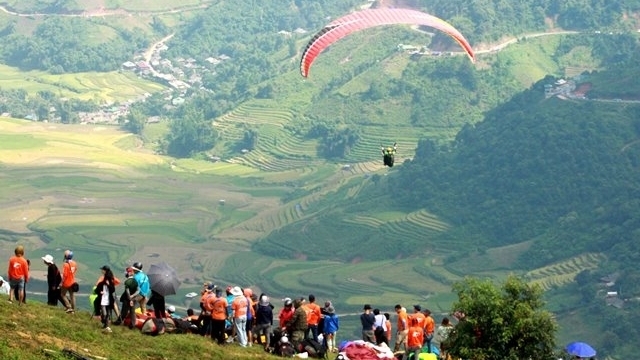


|
The event
is the biggest annual paragliding event in
With the
theme "flying over ripening rice fields”, the festival is a highlight of the
Muong Lo Culture Tourism Week, in Nghia Lo town of
During
the two-day festival, many activities were held, including paragliding
performance, paragliding contests and training for visitors who wished to
participate in the paragliding activities.
The
festival aimed to honour the beauty of local terraced fields as well as
encourage the protection of natural landscape. The festival also sought to
highlight the hard work of local people over the centuries to create the
fields.
According
to Vu Tien Duc, Chairman of Mu Cang Chai district People’s Committee, the
festival contributed greatly to promoting the images of
Earlier,
Ia paragliding festival was also held in Khau Pha in May, with 100
paragliders participating in the event as part of the Yen Bai Tourism Year in
response to the 2017 National Tourism Year.
|
Source: NDO